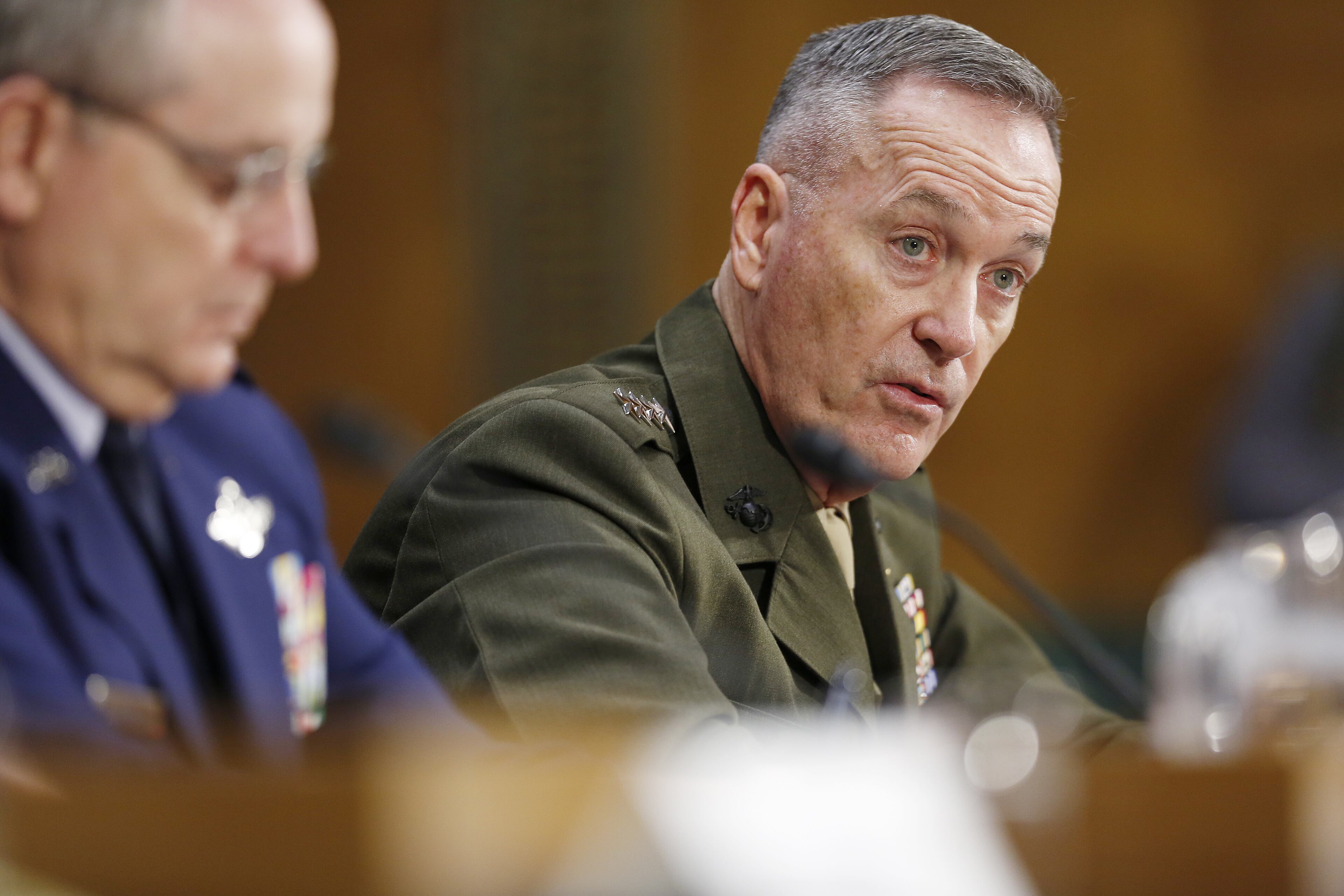A Republican senator member of the Senate Armed Services Committee member Lindsay Graham, pressed Marine Corps Commandant Gen. Joseph Dunford hard on Marine Corps operations in Iraq during a budget hearing Tuesday, suggesting the service Corps needsed to commit more ground troops to ground operations to defeat the threat posed by militants with the Islamic State group militants.
Sen. ator Lindsey Graham, R-S.C., fired a volley of yes-or-no questions at Dunford during a hearing before the Senate Armed Services Committee the commandant as Graham he worked to make his point.
"When it comes to Iraq and Syria, do you agree with me that if we take ISIL on — and when I say 'we,' the United States and the region — we must win?" Graham asked.
"I agree, Ssenator," Dunford replied.
The hearing before the Senate Armed Services Committee was the third of four on the Navy Department's budget proposal for posture of the Navy Department for Ffiscal year 2016. Dunford was joined on the panel by Navy Secretary Ray Mabus and Chief of Naval Operations Adm. Jonathan Greenert.
Graham asked Dunford how many Marines were had been involved in the first and second battles of Fallujah during the Iraq War. Counting Army ground forces in the total, Dunford estimated that 6,000 U.S. troops had taken part in the first battle, and 14,000 in the second.
"OkK, so we're about to fight a bigger force," Graham said. "And how many members of our military do we have in Iraq today?"
Dunford said about 3,000 U.S. troops were on the ground in Iraq, 500 of them Marines. This number includes a Marine contingent advising Iraqi troops in Anbar province, including two 25-man teams embedded with the Iraqi 7th division. It also includes a detachment of Marines assigned to provide security for the U.S. Embassy in Baghdad.

Gen. Joseph Dunford, commandant of the Marine Corps, addresses members of the Senate Armed Services Committee on March 9.
Photo Credit: Mike Morones/Staff
When Graham asked whether Dunford agreed sending ground troops to assist regional forces was "the best way to degrade or destroy" the Islamic State group, Dunford demurred, saying that Army Gen. Lloyd Austin, commander of U.S. Central Command, would soon make a recommendation as to how force presence in Iraq might change. The commandant demurred from offering an opinion about the wisdom of sending additional U.S. forces into Iraq, saying that Army Gen. Lloyd Austin, commander of U.S. Central Command, would soon make a recommendation as to how force presence in Iraq might change. But Dunford he did agreed with Graham that the Islamic State group posed a threat represented a threat to the U.S. — not just to Iraq and the surrounding region.
"So, anyone who thinks that defeating or destroying ISIL is their problem, not ours, is making a huge mistake?" Graham pressed.
Dunford and Chief of Naval Operations Adm. Jonathan Greenert both said they agreed with the sentiment.
"To both of you, and to those who serve under you, I am sorry that some of you may have to go back," Graham said. "But I think you know better than anyone else why you may have to go back. And the only commitment I will make, as a senator from South Carolina, is if you go back, you go back to win. And that we get this right this time."
The hearing before the Senate Armed Services Committee was the third of four on the Navy Department's budget proposal posture of the Navy for Ffiscal year 2016. Dunford was joined on the panel by Greenert and Navy Secretary Ray Mabus and Chief of Naval Operations Adm. Jonathan Greenert.
One of the Senate's most strident defense hawks, Graham has been outspoken about his belief that the U.S. should send additional ground troops to counter Islamic State group militants in the Middle East.
The service chiefs, including Dunford, so far have said little about their own feelings regarding a larger U.S. presence in Iraq and the region.
In a hearing before the Senate Foreign Relations Committee set for Wednesday, Defense Secretary Ash Carter, Chairman of the Joint Chiefs Gen. Martin Dempsey, and Secretary of State John Kerry are expected to brief lawmakers on the president's request for a new authorization for use of military force, which could enable the U.S. to commit more resources to combat the IS threat.





